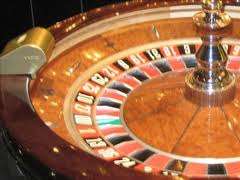LVRJ: ‘Black Friday’ Caused Poker Player’s Malaise and Suicide
The Las Vegas Review-Journal checked in this weekend with a sad poker-themed tale, reporting on the suicide of Alaskan poker player Matthew Anthony Roth in a story titled “Father Says Online Poker’s ‘Black Friday’ Killed His Son“.
Roth, 26, from Fairbanks, was a frequent online player before Black Friday, with accounts at PokerStars, Full Tilt and elsewhere, while he went to school in the state; he eventually graduated from Nevada-Reno in 2012.
 What the LVRJ relates, however, is a tale of a young man who lost his way after his means of making a liveable income was taken from him. According to Roth’s father, Bill, “The federal government two years ago shut down his site, took his money, and with that — they didn’t know it — but they took my son. They took his livelihood, self-esteem, drive. They took his focus.”
What the LVRJ relates, however, is a tale of a young man who lost his way after his means of making a liveable income was taken from him. According to Roth’s father, Bill, “The federal government two years ago shut down his site, took his money, and with that — they didn’t know it — but they took my son. They took his livelihood, self-esteem, drive. They took his focus.”
Even though many smaller sites remain open to US players, the loss of major sites PokerStars and Full Tilt was irreplaceable to certain types of high-volume or high-stakes players, who simply couldn’t replicate that action on the sites that remained. Many hundreds of former US players have relocated to other countries. Others have shifted their play, albeit in lower volumes, to the remaining US sites.
Still others tried their hands at live poker, or transitioned away from the game altogether. That last category seems to have included Roth, and according to his father, the shock of having his livelihood yanked away became to much to take.
Roth isn’t the first person whose death can be directly attributed to Black Friday. Two Swedish men named Andreas Oskarrson were murdered in 2011 in cases that officially are unsolved, though evidence linking them to poker — and Black Friday — is indelible. One of the Oskarssons was the co-founder of PokerListings, and the other was a man with the same name murdered in a presumed case of mistaken identity. A dispute over reduced affiliate revenues from the PokerListings enterprise was the core of the relationship exposed in the investigation into the murders.
As for Roth, who shot himself outside the Wild Wild West Gambling Hall, on Tropicana Ave. just west of the Strip, his demise isn’t unexpected. Tragically, it’s likely that others similarly impacted by Black Friday have or will take such drastic measures, being unable to regain balance and move forward.
Such is the expected effect of attempts to legislate others’ morality, and the failure by gambling foes to recognize that not only is gambling an important part of the human psyche, but that being able to channel that need into a game of skill and produce positive results may just represent a benefit, in making someone into a more productive member of society than they otherwise would be.
This is far different than the normal forms of problem or addictive gambling. Folks whose response is to declare something like, “All gambling is problem gambling” don’t understand that the urge to gamble must have a benefit to the human condition, or else it wouldn’t be so hard-wired into the brain. And indeed, studies have shown that certain gambling behaviors have both psychological and sociological benefits.
The contrapositive to Roth’s sad tale remains the story of Lehigh University Gregory Logan Jr., who robbed a Pennsylvania bank in 2005 to pay off his online gambling debts.
Logan’s debts amounted to a few tens of thousands of dollars, but there was an overriding factor in play: Logan’s daddy, Greggie Sr., was a fire-‘n’-brimstone conservative preacher whose noted anti-gambling screeds had so cowed his son that Greg Jr. felt himself unable to approach his dad for help regarding his gambling problems.
Logan Sr. no doubt had a role in warping his son’s personality to such an extent that the bank robbery was the final result. And Logan Sr.’s response, when it all came out? To keep up the fire-‘n’-brimstone crusade, join the “Focus on the Family” anti-gambling brigade, and continue to do anything but search inside one’s self for some deeper answers.
To have scared one’s son so deeply that he’d go rob a bank rather than come to talk to you might be called a lot of things. I call it bad parenting, which, just like problem gambling, comes in many forms.
And with that, it’s time to return to the sad story of Matt Roth. If what his father says has merit, then some responsibility for his passing must be assigned to those forces whose incessant need to legislate others’ behavior can have such a permanent effect. The fault with that approach is that gambling addiction or gambling-induced depression isn’t the core problem; it’s a symptom of other problems. Attempting to stamp out gambling just redirects those issues somewhere else.



















COMMENTS